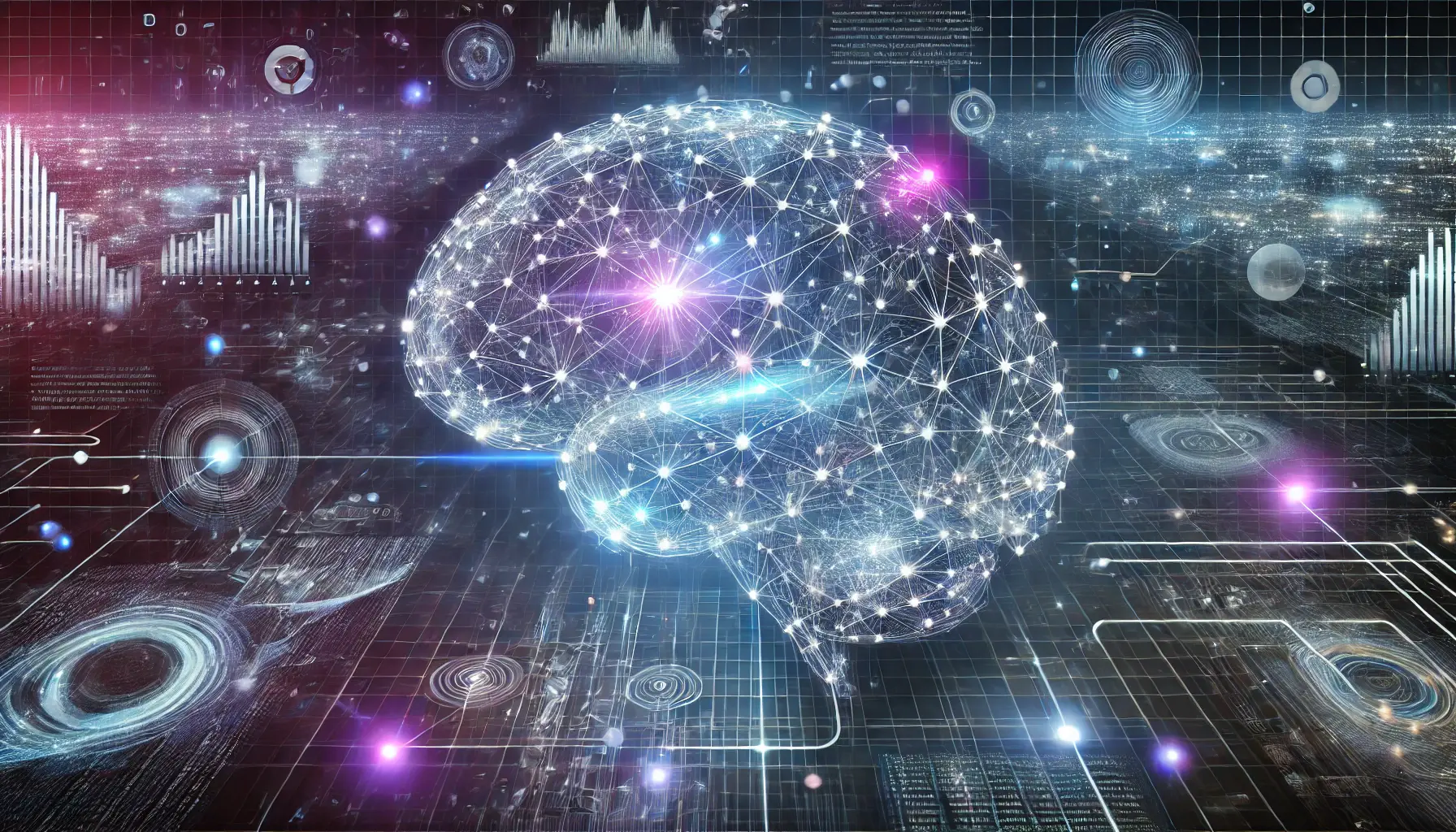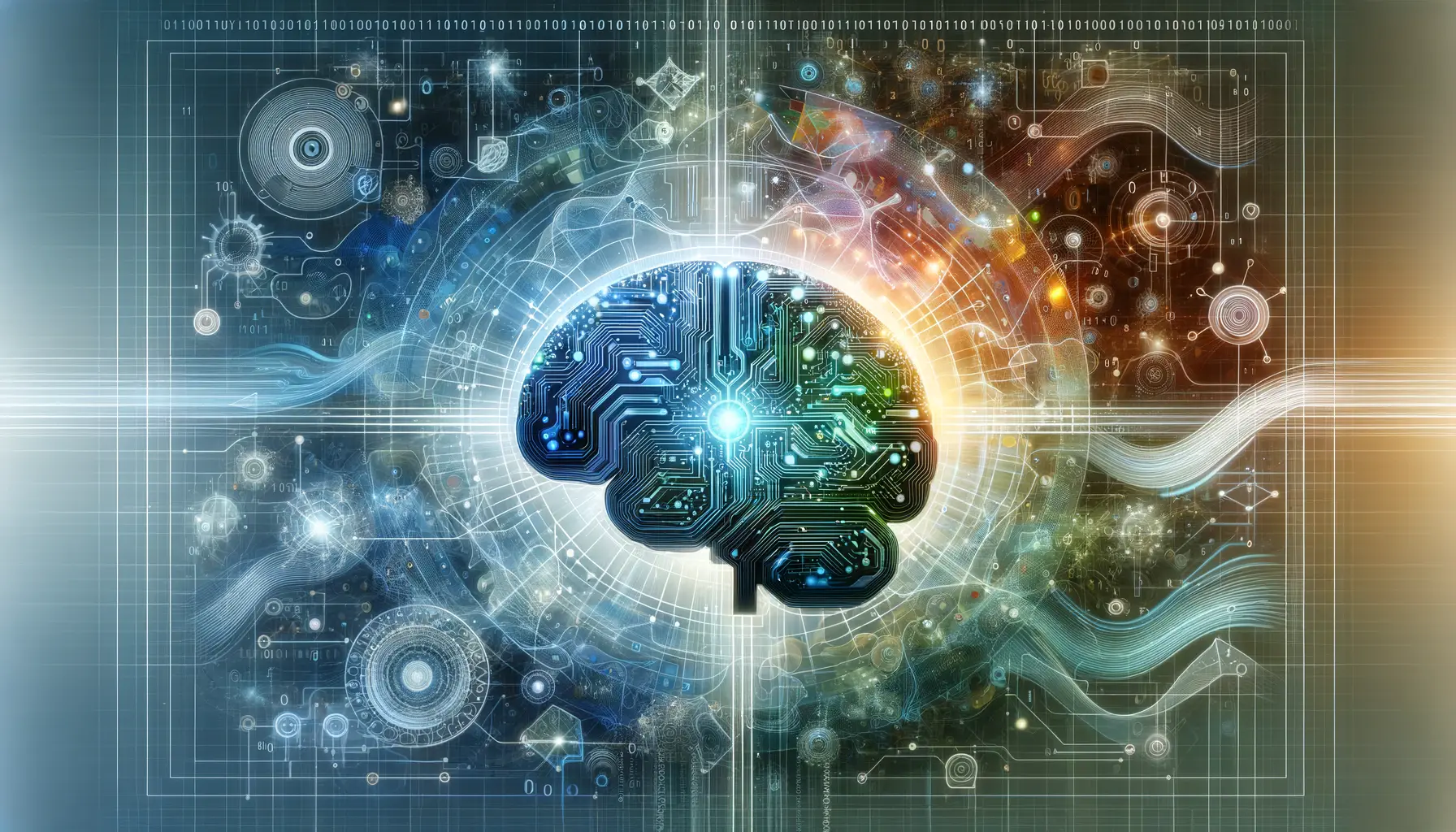The digital marketing landscape is undergoing a transformative shift, with machine learning (ML) emerging as a pivotal force in search engine optimization (SEO).
This evolution marks a significant departure from traditional SEO practices, steering towards a more data-driven approach that leverages the capabilities of ML to enhance website visibility and search engine rankings.
The integration of machine learning into SEO algorithms is not just a trend but a fundamental change that is reshaping how content is optimized for search engines.
At the heart of this transformation is the ability of machine learning to process and analyze vast amounts of data at an unprecedented scale.
This capability enables search engines to understand user intent more accurately, predict search trends, and deliver personalized search results, thereby improving the user experience.
For SEO professionals, this means adapting to a landscape where machine learning algorithms play a crucial role in determining the success of their optimization strategies.
- The Evolution of SEO with Machine Learning
- Keyword Optimization in the Age of Machine Learning
- Link Building and Machine Learning Synergy
- Enhancing User Experience with Machine Learning
- Content Optimization in the Machine Learning Era
- Machine Learning’s Impact on Local SEO
- Predictive Analytics and SEO Forecasting
- Embracing the Future of SEO with Machine Learning
- FAQs on Machine Learning’s Role in SEO Algorithms
The Evolution of SEO with Machine Learning
Machine learning’s influence on SEO can be traced back to the introduction of algorithms like Google’s RankBrain, which uses ML to interpret search queries and the context behind them.
This shift towards understanding the semantics of search queries has made keyword optimization more nuanced, requiring a deeper understanding of topic relevance and content quality.
As machine learning algorithms become increasingly sophisticated, they are set to redefine the parameters of effective SEO strategies.
The implications of machine learning for SEO are profound.
Algorithms are now capable of identifying patterns and insights that were previously inaccessible, allowing for more targeted and effective optimization efforts.
This includes everything from keyword research and content creation to link building and user experience optimization.
The result is a more dynamic and competitive SEO landscape, where success hinges on the ability to leverage machine learning insights to inform and refine optimization strategies.
Understanding User Intent
One of the most significant impacts of machine learning on SEO is its ability to understand and predict user intent.
By analyzing search query data, machine learning algorithms can discern the purpose behind a user’s search, whether they are looking for information, a specific product, or a local service.
This understanding of user intent allows search engines to deliver more relevant and personalized search results, which in turn requires SEO strategies to be more focused on meeting the specific needs and interests of the target audience.
For SEO professionals, this means moving beyond traditional keyword optimization to consider the broader context of how and why people search for information online.
It involves creating content that not only includes the right keywords but also addresses the underlying questions and needs that drive search behavior.
This approach not only improves search engine rankings but also enhances the overall user experience, making it more likely that visitors will engage with the content and take desired actions.
Incorporating machine learning insights into SEO strategies offers a competitive edge, enabling businesses to anticipate changes in search behavior and adapt their content to meet evolving user needs.
Keyword Optimization in the Age of Machine Learning
Machine learning has revolutionized the way SEO professionals approach keyword optimization.
The traditional focus on keyword density and placement has evolved into a more sophisticated strategy that prioritizes relevance and context.
This shift is largely due to machine learning algorithms’ ability to parse and understand the nuances of language, making it essential for SEO strategies to align with these advanced analytical capabilities.
Today, keyword optimization involves a deep dive into semantic search, understanding related terms, synonyms, and the intent behind search queries.
This approach ensures that content is not only discoverable but also resonates with the target audience, thereby improving engagement and conversion rates.
Strategies for Effective Keyword Optimization
- Long-tail Keyword Focus: Machine learning algorithms excel in understanding the context of longer, more conversational search queries. Focusing on long-tail keywords can capture specific search intents, driving more targeted traffic to your site.
- Topic Clusters: Organizing content into topic clusters helps search engines understand the relationship between different pages, improving the site’s overall topical authority. This method aligns with machine learning’s ability to analyze content comprehensively.
- User Intent Matching: Aligning content with the user’s search intent is crucial. Machine learning algorithms prioritize content that best answers the user’s query, making it essential to tailor content to meet these expectations.
- Content Depth and Quality: With machine learning, the quality of content is more critical than ever. Comprehensive, well-researched content that covers a topic in depth is favored by algorithms seeking to provide the best answer to search queries.
By adopting these strategies, SEO professionals can ensure their keyword optimization efforts are in line with the capabilities and expectations of machine learning-driven search algorithms.
This not only improves search rankings but also enhances the user experience, making it more likely that visitors will find the content valuable and relevant.
Semantic search and machine learning require a shift from keyword stuffing to creating meaningful, context-rich content that addresses the user’s intent.
Link Building and Machine Learning Synergy
The advent of machine learning has significantly impacted the practice of link building within SEO strategies.
Traditionally, link building focused on quantity, with the number of inbound links serving as a key metric for website authority.
However, machine learning algorithms have shifted this focus towards the quality and relevance of links, recognizing that not all links contribute equally to a website’s search engine ranking.
This evolution means that SEO professionals must now prioritize building high-quality links from reputable and relevant sources.
Machine learning algorithms can analyze the context in which a link appears, its relevance to the linked content, and the authority of the linking site, making sophisticated link-building strategies more important than ever.
Effective Link Building Strategies in the Machine Learning Era
- Content Marketing: Creating valuable, shareable content naturally attracts high-quality backlinks. Machine learning algorithms recognize and reward the organic growth of a website’s link profile.
- Guest Blogging: Contributing high-quality articles to reputable sites in your industry can yield valuable backlinks. It’s crucial to focus on sites that are relevant to your niche, as machine learning evaluates link relevance.
- Broken Link Building: Identifying broken links on external websites and offering your content as a replacement can be an effective way to gain backlinks. This strategy aligns with the machine learning emphasis on providing users with the best possible experience.
- Influencer Collaboration: Partnering with influencers for content creation and promotion can lead to natural, authoritative links. Machine learning algorithms value links that come from trusted sources within the industry.
By focusing on these strategies, SEO professionals can build a link profile that not only enhances their site’s authority but also aligns with the quality standards enforced by machine learning algorithms.
This approach ensures that link-building efforts contribute positively to a website’s search engine ranking and overall online visibility.
Machine learning has transformed link building from a quantity-focused activity to a quality-centric strategy, emphasizing the importance of relevance, context, and authority.
Enhancing User Experience with Machine Learning
Machine learning has a profound impact on improving user experience (UX), a critical factor in SEO success.
By analyzing vast amounts of user interaction data, machine learning algorithms can identify patterns and preferences, enabling websites to offer more personalized and engaging experiences.
This capability is crucial, as search engines increasingly prioritize UX in their ranking algorithms, recognizing that a positive user experience leads to higher engagement and satisfaction.
SEO strategies must now incorporate UX optimization as a core component, leveraging machine learning insights to tailor content, design, and functionality to meet user needs.
This shift represents a move away from optimizing solely for search engines, towards a more user-centric approach that benefits both users and search rankings.
Key Areas for UX Optimization
- Site Speed: Machine learning algorithms can predict the impact of site speed on user satisfaction. Optimizing for faster load times improves UX and is favored by search engines.
- Content Personalization: By analyzing user behavior, machine learning enables the delivery of personalized content, making the user experience more relevant and engaging.
- Navigation and Usability: Insights from machine learning can guide the design of more intuitive site navigation, helping users find the information they need quickly and efficiently.
- Mobile Optimization: With the increasing prevalence of mobile search, machine learning helps identify and implement best practices for mobile UX, ensuring sites are accessible and user-friendly on all devices.
Implementing UX optimizations based on machine learning insights not only enhances the user experience but also contributes to higher search engine rankings.
As search algorithms become more sophisticated, the ability to deliver a superior UX becomes a key differentiator in the competitive landscape of SEO.
A positive user experience, optimized through machine learning insights, directly contributes to improved SEO performance by increasing user engagement and satisfaction.
Content Optimization in the Machine Learning Era
The integration of machine learning into SEO has fundamentally changed the approach to content optimization.
No longer is it sufficient to simply insert keywords into content and hope for the best.
Machine learning algorithms now analyze content for relevance, quality, and user engagement, pushing SEO professionals to create content that genuinely satisfies user intent and provides value.
This shift towards more intelligent content analysis demands a strategic approach to content creation and optimization.
Content optimization in the machine learning era requires a deep understanding of both the target audience and the complex algorithms that determine content relevance and ranking.
This dual focus ensures that content not only appeals to readers but also aligns with the factors that search engines consider important.
Strategies for Machine Learning-Driven Content Optimization
- User Intent Analysis: Understanding the intent behind search queries allows for the creation of content that directly addresses users’ needs, increasing the likelihood of engagement and conversion.
- Quality and Depth: Machine learning algorithms favor content that provides comprehensive coverage of a topic. High-quality, in-depth content is more likely to rank well and attract backlinks.
- Engagement Metrics: Machine learning evaluates user engagement signals such as time on page and bounce rate. Optimizing content to keep users engaged can positively impact SEO performance.
- Semantic Richness: Incorporating related keywords and topics into content helps machine learning algorithms understand the context and relevance of the content, improving its visibility in search results.
By adopting these strategies, SEO professionals can ensure their content meets the high standards set by machine learning algorithms.
The goal is to create content that not only ranks well but also fulfills the informational or transactional needs of the target audience, thereby driving organic traffic and supporting overall SEO objectives.
Effective content optimization in the machine learning era focuses on meeting user intent with high-quality, engaging, and semantically rich content.
Machine Learning’s Impact on Local SEO
Machine learning is reshaping local SEO, making it more dynamic and effective.
By analyzing location-based data and user behavior, machine learning algorithms can tailor search results to offer the most relevant local content, businesses, and services to users.
This precision in local search results benefits both consumers seeking local information and businesses aiming to capture local market segments.
For SEO professionals, the rise of machine learning in local SEO means adapting strategies to leverage these advanced algorithms.
Ensuring that local business listings are optimized across all relevant platforms, and that content is localized and relevant, has never been more critical.
Optimizing for Local SEO with Machine Learning Insights
- Local Keyword Optimization: Incorporating local keywords and phrases into website content and metadata helps align with machine learning algorithms’ efforts to match local search intent.
- Google My Business Optimization: A well-maintained Google My Business profile is crucial for local SEO success. Machine learning algorithms use this information to present businesses in local search results and maps.
- User Reviews and Ratings: Machine learning algorithms analyze user reviews and ratings to assess a business’s reputation. Encouraging satisfied customers to leave positive reviews can significantly impact local search rankings.
- Localized Content Creation: Creating content that addresses local issues, events, or interests can improve visibility in local search results. Machine learning algorithms prioritize content that is most relevant to the user’s location and search context.
By focusing on these areas, businesses can enhance their visibility in local search results, attracting more foot traffic and online inquiries.
Machine learning’s role in local SEO underscores the importance of a targeted, data-driven approach to optimization, one that accounts for the nuances of local search behavior and preferences.
Ignoring the impact of machine learning on local SEO can result in missed opportunities for businesses to connect with their local audience and achieve higher local search rankings.
Predictive Analytics and SEO Forecasting
Machine learning is not only transforming current SEO practices but also paving the way for predictive analytics in SEO forecasting.
By analyzing historical data and identifying patterns, machine learning algorithms can forecast future trends, search behaviors, and potential changes in search engine algorithms.
This predictive capability enables SEO professionals to anticipate market changes and adjust their strategies proactively, staying ahead of the competition.
Predictive analytics in SEO involves using machine learning models to predict the outcomes of various SEO strategies, helping businesses allocate their resources more effectively and maximize their SEO investments.
This forward-looking approach is becoming increasingly important as the digital landscape becomes more competitive and complex.
Leveraging Predictive Analytics for SEO Success
- Keyword Trend Forecasting: Predictive analytics can identify emerging search trends, allowing businesses to create content around up-and-coming topics before they become highly competitive.
- Content Performance Prediction: By analyzing past content performance, machine learning can predict which types of content are likely to perform well, guiding content creation efforts.
- Link Building Opportunities: Predictive models can identify patterns in link acquisition, highlighting potential opportunities for building high-quality backlinks.
- SEO ROI Estimation: Predictive analytics can estimate the potential return on investment for various SEO strategies, helping businesses prioritize their SEO efforts for maximum impact.
Embracing predictive analytics in SEO allows businesses to be more strategic and efficient in their optimization efforts.
By anticipating future trends and user behaviors, SEO professionals can craft strategies that not only address current search engine requirements but also position their websites favorably for future developments.
The integration of predictive analytics into SEO represents a significant advancement, offering a more strategic and data-driven approach to search engine optimization that anticipates future trends and user needs.
Embracing the Future of SEO with Machine Learning
The integration of machine learning into SEO algorithms has undeniably transformed the landscape of digital marketing.
As we delve deeper into this era of advanced data analysis and predictive analytics, the role of machine learning in SEO becomes increasingly pivotal.
This evolution demands a shift from traditional SEO tactics to more sophisticated, data-driven strategies that can adapt to the dynamic nature of search engine algorithms and user behavior.
The Path Forward for SEO Professionals
For SEO professionals, the rise of machine learning offers both challenges and opportunities.
The challenge lies in keeping pace with the rapid advancements in technology and adapting strategies accordingly.
However, the opportunity to leverage machine learning for more effective and efficient SEO practices is unparalleled.
By embracing machine learning, SEO professionals can:
- Enhance their understanding of user intent and search context.
- Optimize content with greater precision and relevance.
- Build more meaningful and impactful link-building strategies.
- Improve the user experience across digital platforms.
- Forecast trends and adjust strategies proactively.
These capabilities underscore the importance of machine learning in crafting SEO strategies that are not only responsive to current search engine criteria but also anticipatory of future developments.
Machine Learning: A Catalyst for SEO Innovation
As machine learning continues to evolve, its impact on SEO is expected to deepen, driving innovation and efficiency across all facets of digital marketing.
The ability of machine learning to analyze complex datasets and uncover insights that were previously inaccessible positions it as a critical tool for SEO success.
This technological advancement encourages a more analytical approach to SEO, where decisions are informed by data and strategies are continually refined for optimal performance.
In conclusion, the role of machine learning in SEO algorithms is a testament to the ongoing evolution of digital marketing.
As we look to the future, the integration of machine learning into SEO practices is not just beneficial but essential for staying competitive in the digital arena.
By harnessing the power of machine learning, businesses and SEO professionals can unlock new levels of SEO success, driving visibility, engagement, and growth in an increasingly complex digital landscape.
Want your website to top Google search rankings? Leave the SEO to our professional agency!
FAQs on Machine Learning’s Role in SEO Algorithms
Explore common queries about how machine learning influences SEO strategies and outcomes.
Machine learning enhances SEO by better understanding user intent, enabling personalized search experiences, and optimizing content relevance.
Yes, machine learning can analyze historical data to forecast SEO trends and user search behaviors, aiding in strategic planning.
Machine learning refines keyword analysis, focusing on semantic search and the context behind queries for more targeted content.
Yes, machine learning identifies high-quality link-building opportunities by analyzing the relevance and authority of potential linking sites.
It enables the creation of optimized, high-quality content at scale, focusing on user engagement and content relevance.
Machine learning significantly enhances local SEO by personalizing search results based on user location and local search trends.
It analyzes user behavior to improve site navigation, content relevance, and overall user satisfaction, impacting SEO rankings.
No, it serves as a tool to augment SEO strategies, requiring professionals to adapt and leverage insights for optimization.










